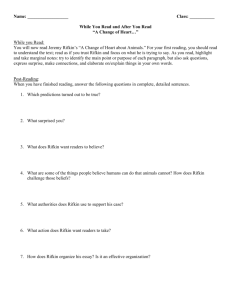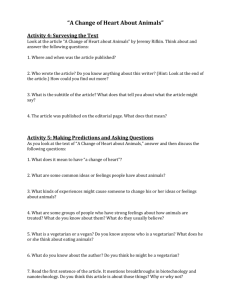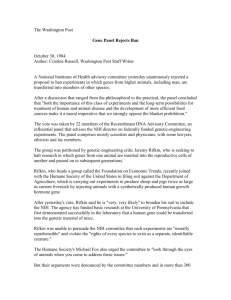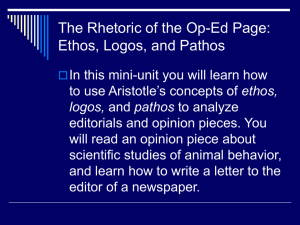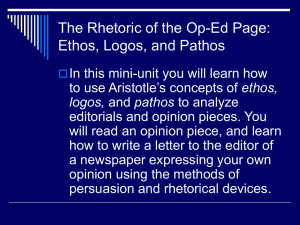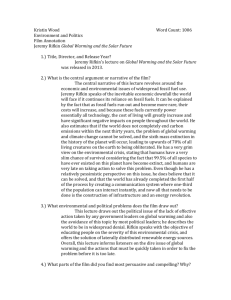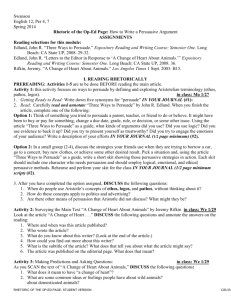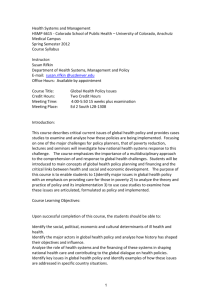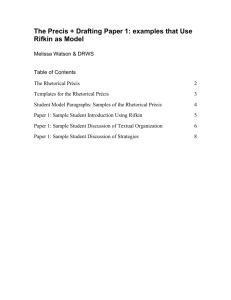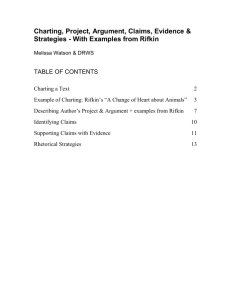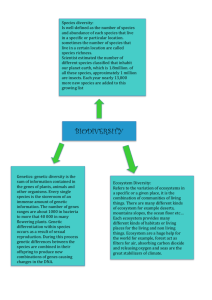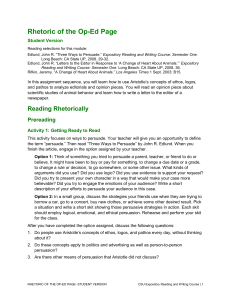Activist Challenges Gene-Transfer Research
advertisement
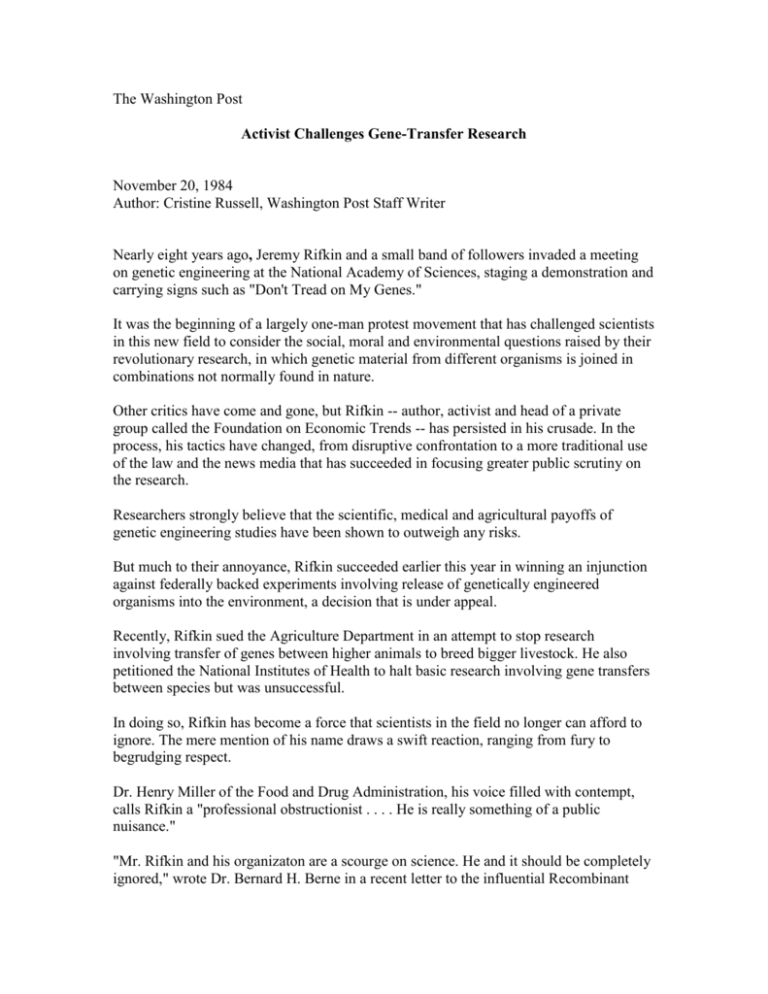
The Washington Post Activist Challenges Gene-Transfer Research November 20, 1984 Author: Cristine Russell, Washington Post Staff Writer Nearly eight years ago, Jeremy Rifkin and a small band of followers invaded a meeting on genetic engineering at the National Academy of Sciences, staging a demonstration and carrying signs such as "Don't Tread on My Genes." It was the beginning of a largely one-man protest movement that has challenged scientists in this new field to consider the social, moral and environmental questions raised by their revolutionary research, in which genetic material from different organisms is joined in combinations not normally found in nature. Other critics have come and gone, but Rifkin -- author, activist and head of a private group called the Foundation on Economic Trends -- has persisted in his crusade. In the process, his tactics have changed, from disruptive confrontation to a more traditional use of the law and the news media that has succeeded in focusing greater public scrutiny on the research. Researchers strongly believe that the scientific, medical and agricultural payoffs of genetic engineering studies have been shown to outweigh any risks. But much to their annoyance, Rifkin succeeded earlier this year in winning an injunction against federally backed experiments involving release of genetically engineered organisms into the environment, a decision that is under appeal. Recently, Rifkin sued the Agriculture Department in an attempt to stop research involving transfer of genes between higher animals to breed bigger livestock. He also petitioned the National Institutes of Health to halt basic research involving gene transfers between species but was unsuccessful. In doing so, Rifkin has become a force that scientists in the field no longer can afford to ignore. The mere mention of his name draws a swift reaction, ranging from fury to begrudging respect. Dr. Henry Miller of the Food and Drug Administration, his voice filled with contempt, calls Rifkin a "professional obstructionist . . . . He is really something of a public nuisance." "Mr. Rifkin and his organizaton are a scourge on science. He and it should be completely ignored," wrote Dr. Bernard H. Berne in a recent letter to the influential Recombinant DNA Advisory Committee, which reviews genetic engineering research for the NIH. "He clearly annoys a lot of us. But we have to take him seriously because he does interfere," said Dr. Susan Gottesman, a National Cancer Institute scientist and member of the advisory committee. "Most scientists wish he would go away. I'd rather have these arguments in public than gloss over the whole thing. In that sense he's doing us a favor," said Dr. Fred Rapp, a Pennsylvania State University microbiologist who also serves on the committee. "He's not a scientist . . . . I think it's good to have people asking questions of us in science," said David Pimentel, a Cornell ecologist who has been a consultant to Rifkin and the government gene panel. Its chairman, California lawyer Robert Mitchell, said that "if Rifkin didn't exist, we'd probably have to invent him." At its most recent meeting, the advisory committee debated the philosophical and practical aspects of Rifkin's proposal to shut down research involving the transfer of genes between higher species, research that he views as "morally reprehensive" and a "violation of the rights of every species." The panel unanimously rejected the controversial proposal, saying that "the long-term possibilities for treatment of human and animal disease and the development of more efficient food sources make it a moral imperative that we strongly oppose the blanket prohibition." In response, Rifkin said he plans to extend his suit against the USDA to include the NIH. In a recent interview in his Dupont Circle office, he defended his opposition to genetic engineering, saying he is not "anti-science" but rather is challenging scientists' attitudes. "They believe the way to advance knowledge is to get control over the forces of nature," he said. "Nature wasn't placed here for us." His attack on genetic engineering, a technology "so powerful" that he compares it to early man's discovery of fire, stems from a longstanding concern about "basic changes in America." A graduate of the University of Pennsylvania with a master's degree from Tufts in law and diplomacy, Rifkin, 39, was a late-1960s antiwar activist and VISTA volunteer. He headed two alternative groups, the People's Bicentennial Commission and the People's Business Commission, before starting his latest foundation. The author of eight books on history, science and technology, he raises money for his activities from his publications, college speaking tours and other private foundations. Rifkin said he plans to keep after genetic engineering scientists "until there's a change of consciousness . . . . I'm like one of those dogs yapping at your heels. Sooner or later you adjust your walk." Copyright (c) 1984 The Washington Post
